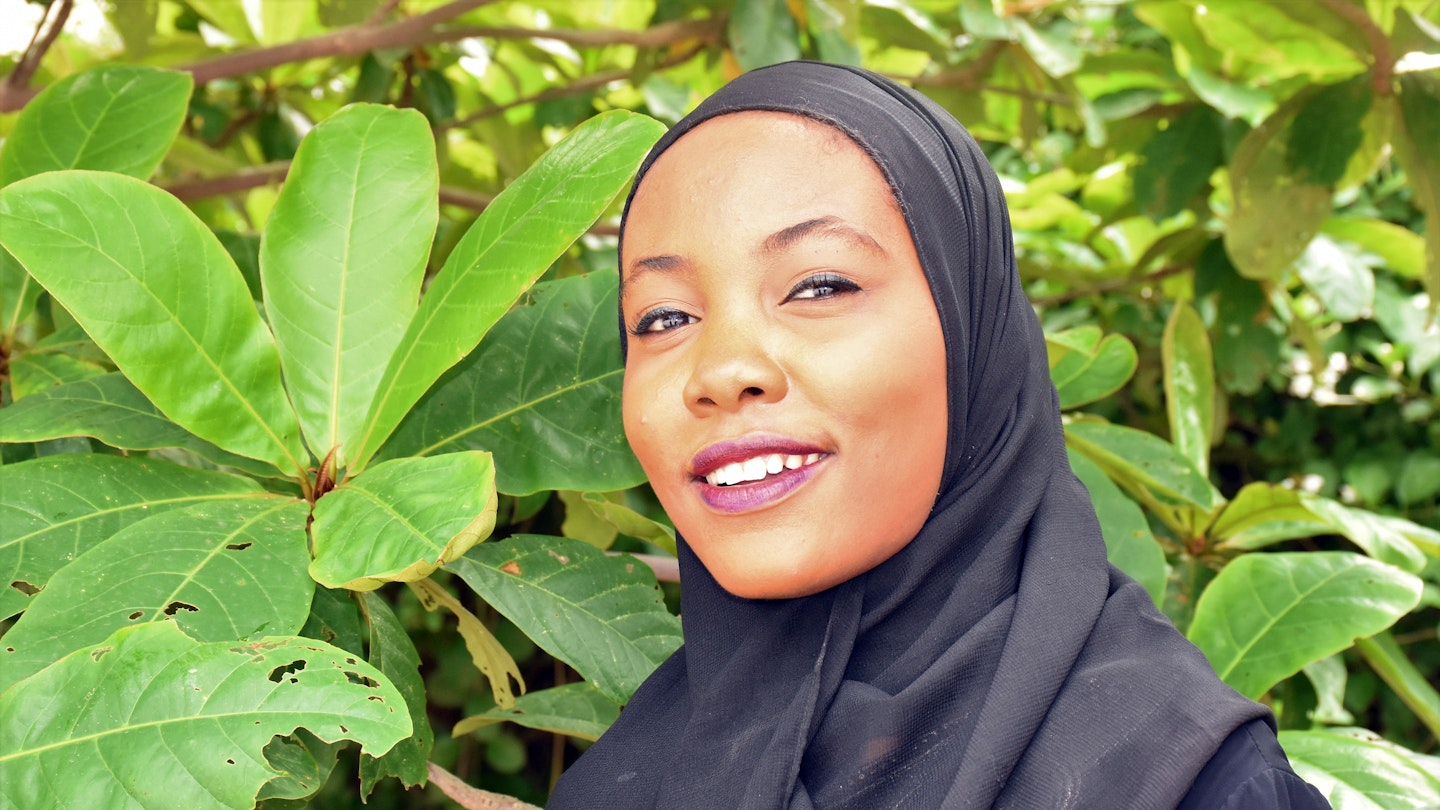Nearly every country in the world has felt the affects of the pandemic this past year, and - as is often the case during crises - women especially are bearing the brunt. But that's not to say there isn't reason for hope. This International Women's Day, we hear from seven forces for change on their vows to make the world a fairer place, who also remind us why the day is still so needed. From working to ensure young women and girls are safer and benefit from improved laws to refusing to be silent on the violations committed against them, they are doing valuable work with Plan International. While some of their stories remind us how far we are from achieving equality, they also show how many incredible women around the world are fighting for a better future and need celebrating.
Aishatu Alhajikabu, 24, Nigeria
Aishatu, who identifies as a gender-based violence survivor, was displaced from her home in Borno state after it was attacked by insurgents. Now living in another part of the region, she is founder of the Zenith support group, an organisation that advocates for the rights of girls and women in North East Nigeria.
'The situation for girls is dire, especially when it comes to education and safety. In recent months, the abduction of school children in the northern part of the country has become more frequent. Nigeria currently has more than 11 million children out of school, which is the highest in the world, according to UNICEF, and the northeast Nigeria crisis has made the situation even worse, especially for girls. I hope things will change for the better for children and girls in my country. My hope for 2021 is to be able access the opportunities and funding we need to reach a larger number of girls, so that we can empower them with the skills and education they need to realise their dreams and lead healthy lives.'
Hiba Alhejazi, 30, Jordan

Hiba is an Advocacy and Influencing manager at Plan International’s Country Office in Jordan. Hiba works to advance children's rights by focusing on key issues affecting the most vulnerable children, especially girls, among refugee and host communities in Jordan.
'We are living in a world that is increasingly interconnected but seemingly divided. With everything that has occurred, my hope for 2021 is that we can begin to grow towards rather than away from each other. Because whether we like it or not, the majority of the world’s problems, both local and international, require us to work with and not against each other.'
Rachel Challita, 34, Lebanon (based in Beirut)

'With everything that happened last year, I have two hopes for next year, one on the personal level and one on the professional. My first hope is that my children will have a more stable and peaceful year. My second hope is that all young women and girls in Lebanon will have safer places and improved laws that protect them from harm.'
Advocacy & Influencing Manager, Plan International Lebanon
Janaina Hirata, 30, Colombia (but originally from Brazil)

'I believe in the power of education to build back from coronavirus for a more equal and equitable society for our girls and women! As Paulo Freire said once, education changes people. People change the World.'
Janaina is an Education in Emergencies Specialist, working in Plan International’s Programme Response for the Venezuelan Crisis.
Noelia Errecarte, 36, Paraguay

Noelia is a psychologist by training. Since 2017 she has worked as a manager in the Programs office for the departments of Guairá and Paraguarí.
'Girls are our daily inspiration - working with and for girls, listening to them, knowing their dreams, seeing them create and participate, seeing them free. They are also our urgency to act. They show us it is possible to break with the practices that limited the possibilities of their mothers and grandmothers.'
Sadia Allin, Somalia

I refuse to be silent on the violations committed against girls and women.
'Women and girls have borne the brunt of COVID-19, but their struggle for equality will continue. I refuse to be silent on the violations committed against girls and women and choose to challenge the social norms that perpetuate gender inequality. If we can get a vaccination for COVID-19 within a year, we may be able to stop ‘the second pandemic’ of gender-based violence. The key to unlocking girls’ potentials is education; let's invest in their education so they can access education and stay in school. Let's recognise women's economic contribution and respect their worth.'
Sadia is Head of Mission for Somalia/Somaliland at Plan International
Laura Rey Castro, Honduras

'When Hurricane Eta hit our country, we didn’t hesitate to go out to the field and support the families who had suffered the loss of their belongings, crops and houses. While we were there, we received the alert for Hurricane Iota, which made everything even worse. When I put my boots on and go out to the field, I get a thrill, because I love to speak with people in the communities, to see how girls and boys are coping with the pandemic and recent disasters, to find ways to better help them through their own testimonies, and to make sure our actions are helpful and timely. I hope that 2021 can be a better year for people who have suffered because of hurricanes Eta and Iota and COVID-19. And I want to make sure that through our response we are directly and effectively involved in improving their lives and conditions.'
Laura is a Program Support Manager in Plan International Honduras.
